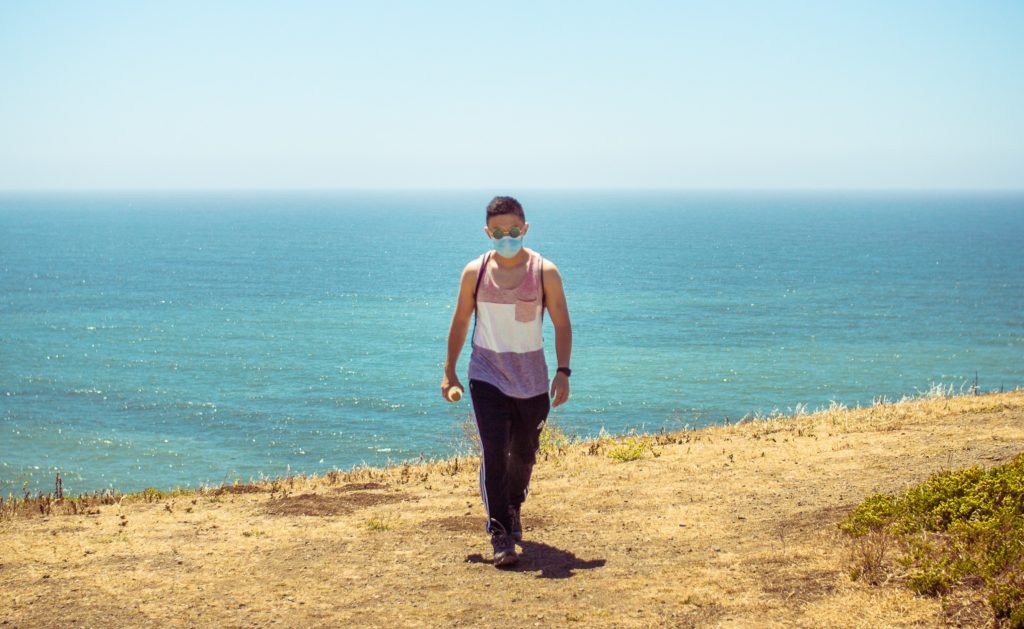Startup Ideas for the Post Covid World: Facilitating Travel Experiences

There are two major trends that the world will need to take in stride in the Covid era: air travel will become expensive and people will be working remotely.
The key driver of ticket pricing in the airline industry is business travelers. They pay for expensive tickets, which subsidize the budget travelers.
In the Covid era, business travel has plummeted. Airlines are struggling to stay afloat. Those that survive will likely see fewer business travelers and will have to raise their ticket prices.
Of the various segments that this hurts, the one I shall focus on is young travelers with limited budgets and unlimited wanderlust.
International travel is a big part of education. Companies could facilitate travel experiences for their employees in creative ways, leveraging the remote work trend sweeping through the world.
There’s another segment of the travel industry that is getting devastated as we speak: hotels. This startup idea creates a bridge between struggling hotels and companies that want to offer their employees interesting cultural experiences abroad.
Great culture in which employees thrive is hard to build. In the last decade, companies have struggled to connect with their younger employees who are more interested in unique experiences than in pure mercenary incentives.
If companies created structured opportunities for employees to go live in a foreign country for a month or two, while working remotely, I believe, there would be many takers.
Let us say, Roberto, a young, single, 25-year old guy, works for Facebook in Menlo Park. But his wanderlust has him dreaming of living in Sicily, Corsica, Santorini, and Mallorca.
Facebook is part of an international online travel agency (OTA) that lists hotels that offer long term stay and work facilities in all these destinations. Roberto could spend four months, one each, in each of the four European islands. He works remotely. He explores. He comes back with a rich set of experiences four months later.
Having had a taste of this experience, the following year, Roberto decides to spend six months abroad, and explore six more places: Tuscany, Provence, Brittany, Andalucia, the Basque Country, and Budapest.
And so on.
By the time Roberto is 30, he has lived in 30 different places, learnt three languages, studied the history and culture of 10 countries.
Talk about a rich set of experiences for a youngster!
My thesis is that if large companies started offering this option to their employees, a massive number of them would jump on it.
Some Numbers
Let us say, 100 companies offer this option to their employees. In each company, 200 people take up the offer. That means, 20K hotel rooms would be needed with long term stay provisions, as well as working space. In some cases, the rooms may be large enough to enable the lodgers to work from them. In other cases, if the rooms are small, a coworking space would need to be offered.
Assuming that each room costs $1000 a month, the marketplace would generate $20M in bookings. At a 10% commission, the OTA makes $2M in revenue.
Of course, as they get to experience this novel way of life, each of the 20K users would likely increase their utilization of the facility. Instead of one month a year, they may do three months a year on average.
Another possibility is if entire teams within a company choose to go live in a different country for a period of time. This represents an immense team-building and bonding opportunity.
There are also families who like to expose their children to different cultures, and plant the seeds of their own wanderlust in them. Their needs could also be worked into the OTA’s offerings.
With relatively low amounts of air travel, people with flexible life circumstances can indulge their wanderlust in unprecedented ways.
And companies can facilitate unique and charming travel experiences to command deep loyalty.
In the long run, if a million hotel rooms are part of this OTA, and they experience 75% occupancy, $9B in bookings could happen. For the OTA, this amounts to $900M in revenues.
That would be a $5-$10B market cap company, a Unicorn.
If you want to work on these ideas and are looking for mentoring, start by going through our free Bootstrapping Course, especially the Bootstrapping with a Paycheck module, and then come to our Free Public Roundtables. We hold them weekly.
Photo by Albert Hu on Unsplash
This segment is a part in the series : Startup Ideas for the Post Covid World
Featured Videos
Can 1M/1M Help Me Raise Money?
How Does 1M/1M Democratize Entrepreneurship Education?
How Does 1M/1M Democratize Management Consulting?
When Is The Right Time To Join 1M/1M?
Can 1M/1M Help Me With Business Development?
Can 1M/1M Help Me With Market Sizing?
Can 1M/1M Help Me Validate My Product?
Will I Have Private 1-on-1 Sessions In 1M/1M?
How Does 1M/1M Help Entrepreneurs Connect With Silicon Valley?
Mentoring or Consulting?
Why Does 1M/1M Charge $1000 a Year?
Why Does 1M/1M Partner With Local Organizations?
Why Don\’t Mentoring Networks Work?
Why Is It Important To Study With 1M/1M Now?
Dan Stewart Story
Vikrant Mathur Story
